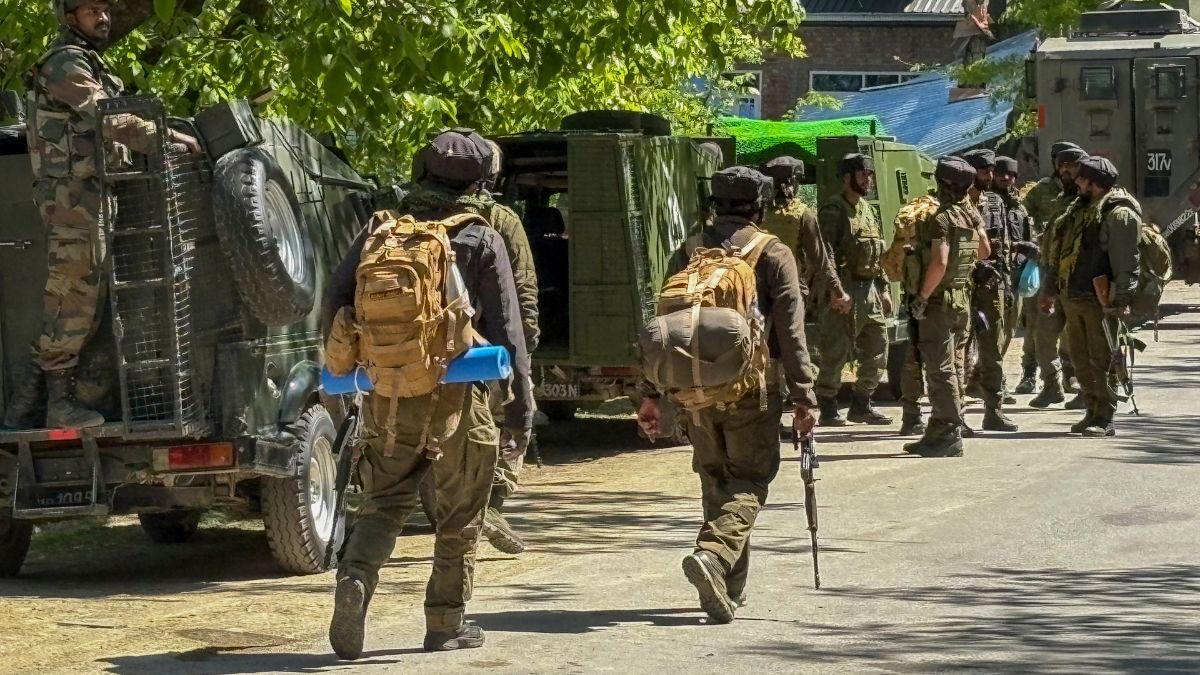Pahalgam terror attack: Ceasefire agreement under strain as unprovoked firing spreads beyond Kashmir
 Security personnel conduct a cordon and search operation as a security measure after the recent Pahalgam terror attack, in Anantnag | PTI
Security personnel conduct a cordon and search operation as a security measure after the recent Pahalgam terror attack, in Anantnag | PTI
The 2021 ceasefire agreement between India and Pakistan is under serious strain following a sharp rise in firing along the Line of Control (Loc), triggered by the April 22 terror attack in Pahalgam that killed 26 people, including 25 tourists and a local guide, Syed Adil Hussain.
For the first time since the agreement was signed, the firing has spread from Kashmir into the Jammu region, including areas along the International Border (IB). This has raised fears of a wider military escalation.
According to a defence spokesperson, the Pakistan Army has opened fire for six consecutive nights, targeting Indian positions along both the LOC and the IB. The firing involved small arms such as rifles and light machine guns and was described as "unprovoked". It occurred in several sectors, including Kupwara, Poonch, Sunderbani, Nowshera, Akhnoor, and Pargwal.
No casualties have been reported on the Indian side so far. The Indian Army has responded "proportionately". More than a dozen confirmed ceasefire violations (CFVS) have been reported since 24 April.
Although heavy weapons like mortars and artillery have not been used yet, the increase in small arms fire could lead to further escalation.
Before the Pahalgam attack, CFVS had almost stopped—only one was recorded in 2022, none in 2023, and two earlier in 2024. Security has been tightened in border areas, with more vehicle checks and patrols. '
Residents in Kupwara and nearby regions have reported late-night movement of Army vehicles and temporary restrictions on civilian movement. In some villages along the Loc and IB, people have started clearing out their bunkers in preparation for emergencies. These bunkers are reinforced shelters made of cement and steel, with proper ventilation.
Villages near the LOC in north Kashmir’s Uri and Karnah are watching the situation closely.
In the past, these areas have suffered damage and loss of life due to shelling and gunfire. Some villagers have even suffered amputations from past incidents. Residents of Uri and Karnah told The Week that while things are currently calm, they are staying alert.
Javid Iqbal, a resident of Uri, said daily life continues as normal for now.
“There is no fear or panic yet. If something happens, we will take steps to protect ourselves,” he said. Waseem Baba from Karnah added, “Tension is in the air. We just hope the situation does not get worse.”
The central government has decided to respond firmly to the Pahalgam attack. Prime Minister Narendra Modi has given the armed forces full freedom to decide on the scale, timing, and location of retaliation. Meanwhile, senior military officials from both sides have spoken via hotline, with India warning Pakistan against further firing. The 2021 ceasefire agreement had brought rare peace to the border areas. But after recent violence, its future is now uncertain.
India